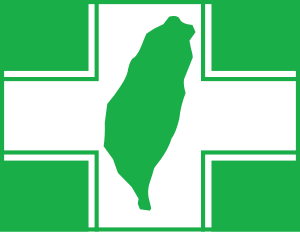Green is the New Blue: Time for Change in Taiwan?
 Jan.17th - As the only candidate in the party election, Zhu Li-Lun won the presidency of Taiwan’s Kuomintang (KMT) after Ma Ying-Jeou announced his intention to step down late last year after having served as chairman for two terms. Ma’s resignation followed the KMT’s unprecedented defeat in Taiwan’s local elections in November 2014, when the party witnessed its municipal seats dropping from 15 to 6 while mayoral candidates from the Democratic Progressive Party (DPP) won 13 out of 22 seats in major cities and metropolitan areas, including Taichung, a politically strategic city located center-west of Taiwan with a population of 2.7 million. According to BBC reporting, Hu Chih-Chiang, the KMT candidate for Taichung who has ruled the city for 13 years, only won 1 out of the 29 districts, including many districts that historically supported the party.
Jan.17th - As the only candidate in the party election, Zhu Li-Lun won the presidency of Taiwan’s Kuomintang (KMT) after Ma Ying-Jeou announced his intention to step down late last year after having served as chairman for two terms. Ma’s resignation followed the KMT’s unprecedented defeat in Taiwan’s local elections in November 2014, when the party witnessed its municipal seats dropping from 15 to 6 while mayoral candidates from the Democratic Progressive Party (DPP) won 13 out of 22 seats in major cities and metropolitan areas, including Taichung, a politically strategic city located center-west of Taiwan with a population of 2.7 million. According to BBC reporting, Hu Chih-Chiang, the KMT candidate for Taichung who has ruled the city for 13 years, only won 1 out of the 29 districts, including many districts that historically supported the party.
Historically, Taichung has been the dividing point of rivalling political parties’ spheres of influence. North of Taichung is usually perceived as “blue”, the color of the KMT’s emblem, while South of Taichung is considered “green”, the color of the DPP. However, under the leadership of Tsai Ying-Wen, the DPP’s chairman who assumed leadership in May last year, the Progressive Party has expanded its influence from the South to Central Taiwan and is threatening KMT’s dominance in the North. Even in Taipei, Taiwan’s capital and the largest city, the KMT also lost the governorship to Ko Wen-je, a former trauma surgeon who ran as an independent candidate.
The stunning result sent a clear message: people in Taiwan are not happy with the status quo, and they are angry at KMT officials. Taiwan’s poor economic performance seems to be troubling middle and lower-class workers who are “dissatisfied with the way Ma handled the economy”, says George Tsai of the Taiwan Foundation for Democracy. Long-stagnating salaries and the increasingly popular belief that central policies favor business elites at the expense of the working class both contributed to such grievances against the incumbent government. The Sunflower Movement, a student-led movement that culminated in a 2000-people mass protest and occupation of the Legislature in March last year, reflected the prevalence of this view among Taiwanese youth. Protesters argued that the ground-breaking bilateral free trade agreement President Ma concluded with China in March compromises the interest of workers while benefiting conglomerates. More importantly, Ma failed to obtain consent from the people before signing the pact. To defend the legitimacy of the trade agreement, Mainland China’s media quickly claimed that the decision was made only after Ma hosted multiple briefings with the Legislature and held public consultations. Other social issues, such as the worsening security environment in certain cities, including Taichung, and reported food scare involving “gutter oil”, oil that are recycled from restaurant waste and animal byproducts, also enraged the public.
Despite the provincial nature of the elections, the impact on Taiwan’s domestic and foreign policy, especially its relationship with China, can be national. First, the DPP’s victory in 2014 is seen as a prelude to its success to the legislative by-elections next month, and ultimately, the upcoming presidential election in 2016. Tsai, who has not revealed her position on Taiwan-China strait relations, is already expected to develop relevant policy platforms soon, and the return of Chen Shui-Bian, the impeached DPP President who initiated the failed attempt to formally separate Taiwan from China through a national referendum in 2002, would inevitably complicate matters. Chen was reported to be recently released from prison for medical purposes and is now situated in Kaohsiung, the heartland of the DPP and resolutely pro-independence. Though no longer in power, Chen is nevertheless believed to retain substantial influence within the DPP. Although the results of the local elections are more indicative of dissatisfaction toward the KMT rather than support for the DPP per se, the trend seems to be in favor of Tsai’s potential presidency in 2016. As the “green” permeates the North and takes over the “blue”, Taiwan’s bilateral relationship with China could reach another turning point in history.
